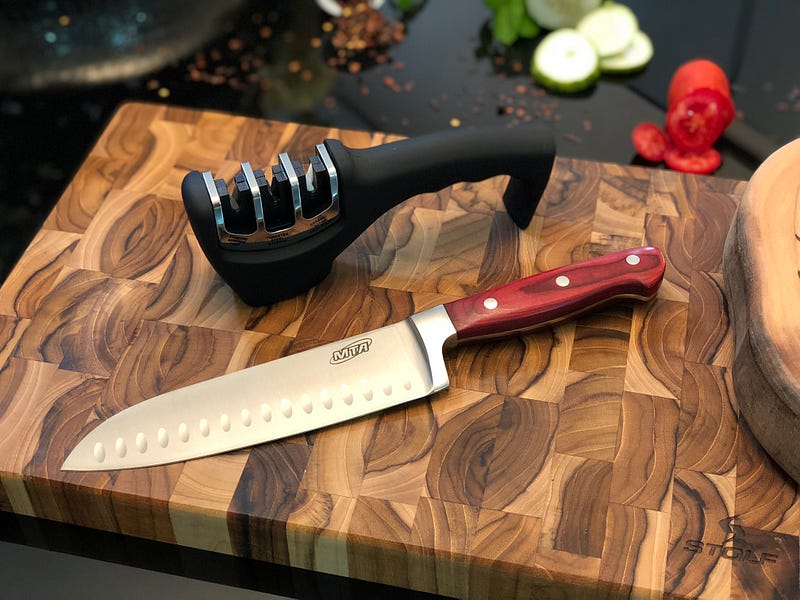The ancient wisdom of “finding the joints” still holds true today

Photo by eduardo froza on Unsplash
Do you find yourself feeling exhausted or anxious at the end of the day? Maybe halfway through the day? Do you wake up feeling like there’s too much to do, and you barely have the energy to get started?
Perhaps you’re hacking and cutting too much.
Chinese philosopher Zhuang Zhou tells the story of three kinds of cooks as a way to illustrate what I mean:
A good cook changes his knife once a year — because he cuts. A mediocre cook changes his knife once a month — because he hacks. I’ve had this knife of mine for nineteen years and I’ve cut up thousands of oxen with it, and yet the blade is as good as though it had just come from the grindstone. There are spaces between the joints, and the blade of the knife has really no thickness. If you insert what has no thickness into such spaces, then there’s plenty of room — more than enough for the blade to play about it. That’s why after nineteen years the blade of my knife is still as good as when it first came from the grindstone.
Zhuang Zhou’s parable is a metaphor for the way we can take on the tasks of daily life. We can essentially be one of the three kinds of cooks. We can cut, we can hack, or we can work with the joints.
The difference between the three — as it applies to daily life — is about exertion.
We often think that effort and exertion is what gets result. In some cases, it is. However, it isn’t the only way to get results. In fact, we often achieve more with much less effort than we think.
As Zhuang Zhou notes, one can cut or hack at the meat, using force and the sharpness of the blades. But over time this dulls the blade. A more effective strategy is to find where the joints are, then use the space in between as a guide to cut up the proverbial meat — with much less effort, and without dulling the blade.
What Zhuang Zhou is talking about are the joints — points in different situations where we can insert ourselves, our will, and our effort — and get more results while expending much less effort. These are the moments when we can achieve worthwhile results without exhausting ourselves.
The key is to remember is that, like the cook in the story, we don’t choose where these joints are placed. They are where they are in any given situation. We need only cut the meat along those lines, which means we must align our desires and plans with the way the joints are lined up.
More than anything, it is about perception and acceptance. You need to clearly perceive how things are, and accept that, so you can act in the best way possible. Find the joints and spaces in the meat, and start carving.
To desire that the meat be laid out some other way is futile. Trying to manipulate situations or people to match our desires will exhaust and frustrate us. The result will be an exhausting, and thus unhappy way of life.
As we attempt to cut up the meat of life, we must let go of our desire to control how things are. Letting go means stopping to examine and understand how it is laid out — regardless of our desires. Then, it is about finding the way to happiness by focusing on what we have in front of us.
We accept things as they are, rather than putting forth Herculean effort trying to rearrange everything to suit our vision of how life should look.Then we proceed from there. Chinese thinkers have referred to this as Wu Wei — the path of non-striving. Wu Wei is not lazy; it is efficient and smart — working with reality — rather than against it.
This is adapted from a passage in my book The Wabi-Sabi Way — now available wherever books are sold.